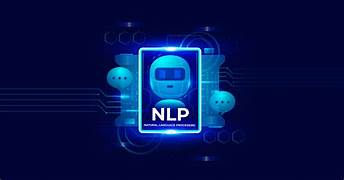NLP Applications in Virtual Customer Service Agents: Transforming Customer Experience
In the fast-paced digital era, customer expectations are evolving rapidly. Businesses are constantly seeking innovative ways to enhance customer experience, streamline operations, and reduce costs. Virtual customer service agents powered by Natural Language Processing (NLP) have emerged as a transformative solution, bridging the gap between human-like interaction and automated efficiency.
This article delves into the role of NLP in virtual customer service, its applications, benefits, challenges, and future prospects. By exploring these dimensions, we aim to highlight how NLP is revolutionizing customer service across industries.
What is NLP?
Natural Language Processing (NLP) is a branch of artificial intelligence (AI) that focuses on enabling machines to understand, interpret, and respond to human language in a natural and meaningful way. NLP combines linguistics, computer science, and machine learning to process and analyze large volumes of text and speech data.
For virtual customer service agents, NLP allows systems to:
- Understand customer queries in natural language.
- Generate coherent and contextually appropriate responses.
- Learn from interactions to improve accuracy and relevance over time.
Applications of NLP in Virtual Customer Service
- Chatbots for Instant Assistance NLP-powered chatbots are among the most common applications of virtual customer service. These bots can handle a wide range of customer inquiries, from resolving basic issues to processing transactions, providing 24/7 support without the need for human intervention.
- Voice Assistants Voice-enabled virtual agents, such as those integrated into call centers or smart devices, leverage speech recognition and synthesis to provide real-time support. NLP ensures that these systems can comprehend spoken language, including accents, slang, and variations in tone.
- Sentiment Analysis By analyzing the emotional tone of customer messages, NLP helps virtual agents identify whether a customer is satisfied, frustrated, or confused. This allows the system to adapt its responses or escalate the issue to a human agent when necessary.
- Multilingual Support NLP enables virtual agents to communicate in multiple languages, making businesses accessible to a global audience. Advanced NLP models can translate queries and responses in real time, ensuring seamless communication.
- Personalized Customer Experiences NLP-driven agents use customer data to provide tailored recommendations, solutions, or promotions. For example, an e-commerce bot might suggest products based on a customer’s previous purchases and browsing history.
- Intelligent Routing In scenarios where virtual agents cannot resolve an issue, NLP helps route the query to the most suitable human agent by analyzing the context and complexity of the problem.
- Knowledge Management NLP-based systems can sift through vast knowledge bases to retrieve accurate and relevant information. This helps virtual agents provide quick and precise answers, enhancing customer satisfaction.
Benefits of NLP in Virtual Customer Service
- Enhanced Efficiency Virtual agents powered by NLP handle high volumes of queries simultaneously, significantly reducing response times and alleviating the workload on human support teams.
- Cost Savings Automating routine customer service tasks lowers operational costs by reducing the need for extensive human support staff while maintaining high-quality service.
- 24/7 Availability Unlike human agents, virtual agents can operate around the clock, providing uninterrupted support and catering to customers across different time zones.
- Improved Customer Satisfaction Quick, accurate, and personalized responses lead to a better overall customer experience. NLP’s ability to understand context and sentiment further enhances interactions.
- Scalability Virtual agents can easily scale to accommodate growing customer bases without the need for additional infrastructure or staff.
- Data-Driven Insights NLP systems analyze customer interactions to uncover trends, pain points, and opportunities for improvement. These insights help businesses refine their services and offerings.
Real-World Examples
- E-Commerce Companies like Amazon and Shopify use NLP-powered chatbots to assist customers with tracking orders, processing returns, and answering product queries. These bots ensure that customers have a seamless shopping experience.
- Banking and Finance Virtual agents in the banking sector, such as Bank of America’s “Erica,” help customers manage accounts, pay bills, and answer financial queries. NLP ensures these interactions are secure, accurate, and user-friendly.
- Telecommunications Telecom companies use NLP-driven agents to troubleshoot technical issues, provide billing information, and upgrade service plans. This reduces wait times and improves customer retention.
- Healthcare In healthcare, virtual agents help patients schedule appointments, answer medical queries, and provide reminders for medication. NLP ensures sensitive information is handled accurately and compassionately.
- Travel and Hospitality NLP-powered bots assist travelers in booking tickets, finding accommodations, and managing itineraries. Airlines and hotels use these systems to deliver personalized recommendations and updates.
Challenges in NLP for Virtual Customer Service
- Understanding Context Language is inherently complex, with nuances like idioms, sarcasm, and cultural differences posing challenges for NLP systems. Misunderstandings can lead to incorrect responses or frustration for customers.
- Data Privacy Handling sensitive customer data requires stringent security measures. Businesses must ensure compliance with privacy regulations like GDPR or CCPA while using NLP systems.
- Multilingual Accuracy While NLP has made significant strides in language processing, ensuring consistent accuracy across languages and dialects remains a challenge.
- Managing Complex Queries Virtual agents may struggle with highly specific or technical queries that require in-depth knowledge or critical thinking, necessitating human intervention.
- Integration with Existing Systems Implementing NLP solutions often requires seamless integration with legacy systems, which can be costly and time-consuming.
- Bias in Training Data NLP models trained on biased datasets can inadvertently produce discriminatory or inappropriate responses, impacting user trust and satisfaction.
Future Trends and Innovations
- Improved Contextual Understanding Advanced NLP models, such as OpenAI’s GPT series, are continually improving in their ability to understand context, enabling more human-like interactions.
- Hybrid Support Models Combining virtual agents with human oversight ensures that complex issues are handled effectively, enhancing customer trust.
- Emotional Intelligence Future NLP systems will incorporate advanced sentiment analysis to recognize and respond to emotional cues, creating empathetic and supportive interactions.
- Proactive Assistance Predictive analytics powered by NLP will enable virtual agents to anticipate customer needs and offer solutions before issues arise.
- Cross-Channel Integration NLP-driven agents will seamlessly operate across platforms, from social media and email to phone calls and chat apps, ensuring a unified customer experience.
- Personalization at Scale As NLP systems become more sophisticated, they will deliver hyper-personalized experiences based on individual customer preferences, behavior, and history.
Conclusion
Natural Language Processing is at the heart of the revolution in virtual customer service. By enabling machines to understand and interact in human language, NLP has unlocked unprecedented opportunities for businesses to enhance customer experience, streamline operations, and drive growth.
While challenges remain, the rapid pace of innovation promises a future where virtual customer service agents become even more intuitive, empathetic, and effective. As businesses continue to adopt and refine NLP technologies, they stand to gain a competitive edge in delivering exceptional customer service in an increasingly digital world.


